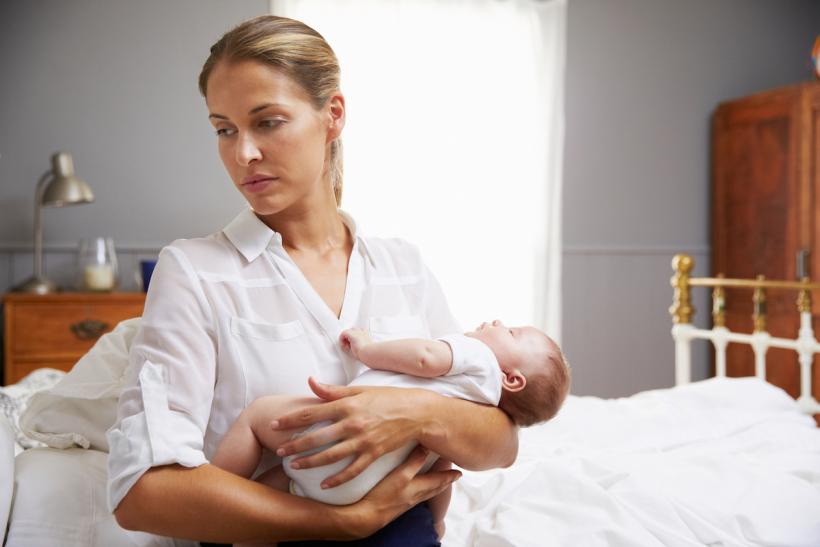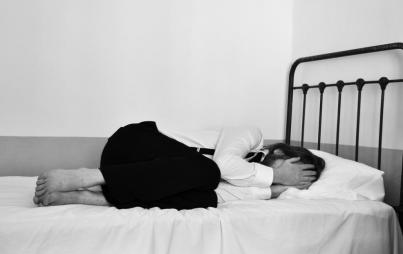
A lot of new parents experience some sort of protective anxiety.
After I read an article about a doctor accidentally tearing a baby's head off during birth (that can't really be true, my husband says, though Daily Mail begs to differ), I can see my son turning his head to the right and continuing on, his neck twisting unnaturally too far.
This happens every so often. Something will spark a worry and I’ll play out the scenario in my head. Meanwhile, my anxiety buzzes in the background like white noise.
It feels like breaking into a run from a standstill, or that pause between telling your crush that you like him and waiting for his response.
The hypervigilance began in the last month of my pregnancy, when cars on the freeway started to feel a little closer than usual. By the time I was due, it felt like they were purposely heading for my car.
A lot of new parents experience some sort of protective anxiety. It’s why so many people check to see if their child is still breathing while they’re sleeping. Born out of inexperience and the fear of losing our loved ones, this kind of anxiety can hit especially hard when a new loved one enters our lives.
This was true for my son, and it was true for my husband. When my husband and I first got together, I’d watch the rise and fall of his chest, and think about how much richer my life was with him in it. And how awful it would feel, should I ever lose him.
My mom’s death taught me the futility of getting stuck on worries. Worrying didn’t make me any more prepared for her death.
Anxiety can be a good thing. It keeps us attentive and alert when we need to be. It’s only a problem when there’s too much of it. Or when it pops up in situations that don’t call for it. Or when it’s with you all the time.
I used to have a combination of all three. I spent a lot of time replaying conversations and worrying about what people thought of me. When someone was running late, a car crash was also always at the top of my list of reasons.
My mom had a lot of anxiety too. She worried about the same things I did, plus she was forever on a mission to keep my brother and me healthy. We were always being handed jackets and vitamins. Products with toxic chemicals were especially frowned upon.
Eventually we both got our anxiety under control with therapy and medication. But we’d still get overly anxious in stressful situations.
When my mom was diagnosed with endometrial cancer, I vacillated between worrying too much or not at all. I’d burn myself out obsessing about it and then need time to clear my thoughts, which meant not seeing her.
My mom behaved similarly. After a particularly upsetting progress report, she didn’t sleep for weeks. She and my dad would wake up in the middle of the night and play Boggle for hours. Then she decided that the doctor was wrong, and continued on.
The thought of not having my mom in my life was terrifying, overwhelming. Avoiding it occasionally gave me relief, but ultimately made it worse. I wasted time that I could have spent with my mom, just being with her. I had plenty of time to come to terms with her death after she passed away.
My mom’s death taught me the futility of getting stuck on worries. Worrying didn’t make me any more prepared for her death. Imagining how I’d feel didn’t make me feel any less devastated. The anxiety was draining and defeating, not beneficial or purposeful.
So when the what ifs about my son’s safety start, I let the thoughts pass through my head but don’t dwell on them.
I take a deep breath and recognize the anxiety for what it is—a reminder of how much I love my son and how important it is to be present in the moment with him.








